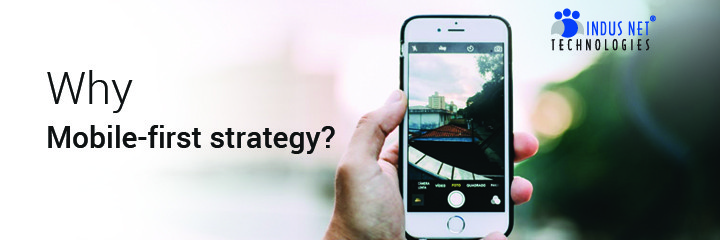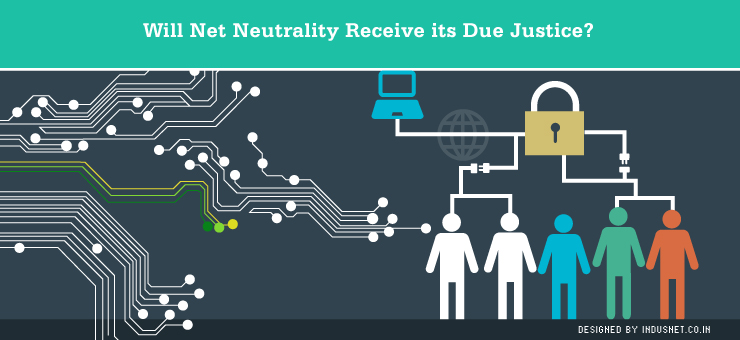
5 Reasons Why your Business needs a Mobile-First Strategy
Today, even before we fully open our eyes in the morning we reach out for the mobile phones. Also, many of us sleep with our favourite smart device in hand. Mobile phones, we know it sounds like a cliché, have become as important in our lives and business as much as cheese is on a pizza. More than 4 billion people today own mobile phones, but only 3.5 billion use a toothbrush. Yes, we know it sounds strange but we all know that truth is stranger than fiction. Here’s another moment of truth. More people in the world have phones than a toilet. Predictions say that by 2018, more than 50% of users of mobile phones will use tablets or smartphones for all searches and online activities. At such a time, it’s a given that if you have a business, even if it’s a small one, you need to adopt the mobile-first strategy. It’s no longer important for your business to be on mobile. It’s MANDATORY. In case, your business is only present on the desktop, then here’s one more reason to shift your business to the mobile at the earliest. According to Reuters, 75 % of internet use is expected to come from mobile devices in 2017. A mobile-first strategy means that your business website will be designed and launched for mobile first and then for the desktop. Even a few years ago, businesses came up with desktop versions of their websites and then if need be, changed it to a mobile site. Today, businesses just cannot be complacent with the desktop versions of the website. In fact, today most businesses design mobile site first and then go for the desktop version. If you haven’t integrated mobile into your business, let’s understand the top 5 reasons why and how a mobile-first strategy can impact your business. 24×7 availability Alice Foote MacDougall had said, “In business everyone is out to grab, to fight, to win. Either you are the under or the over dog. It is up to you to be on top.” Let’s admit it. We are all in the business to gain profit and also satisfy the customers. At Indus Net Technologies, we strongly go by the mantra of “We win when our customers win .” So, for any business, it’s highly important to be in constant touch with the customers, communicate with them even on the move. It’s only when you satisfy your consumers that your business can shine. As already mentioned, today we sleep with our smartphones and hence if you want your consumers to reach out your web content anytime anywhere, then your business should be on the mobile. In this way, you can be in touch with your customer and clients 24X7. This helps to drive more customer engagement. According to another study, it says that an average person checks their smartphones almost 85 times a day. This means a user spends nearly five hours browsing the web and apps. This study again reinstates the fact that your business needs to be visible all the time and should be in direct reach of the consumers. So, being only on desktop websites wouldn’t really help. Today from small, mid to large companies understand the true potential of a mobile-first strategy of their businesses. Mobile users want personal, content-rich, fast, and smooth experience and that’s the main agenda of a mobile-first approach for any company. Munna Das, Project Manager, Mobility, Indus Net Technologies, inform a business needs to adopt mobile-first strategy if it wants to stay ahead in the competition. “If any business is looking to expand its user base, it should be able to connect, engage and provide value to the customer. This can be done in a more effective way if the business is present on the mobile,” she says. Mobile users are more than desktop users Just tell us how many of you access Facebook, Twitter, Instagram or Pinterest on the desktop? According to an article in Forbes, 85% of Twitter users in America in 2014 accessed the site or app on mobile devices. From medical alerts, finding houses, booking hotels, honestly speaking, today we can’t imagine doing anything without cellular phones. In fact, if there’s something which we can’t do on our mobile phones, we tend to get agitated. Mobile is the future of everything, as rightly put forward in an article in Forbes. According to StatCounter Global Stats mobile and tablet devices accounted for 51.3% of internet usage worldwide in October 2016 compared to 48.7% by a desktop. This clearly indicates that users prefer mobile phones over desktop for searches or any other internet activity. In 2015, Google confirmed for the first time that mobile searches top desktop. Mobile is taking over the world. According to Zenith’s new Mobile Advertising Forecast, Hong Kong will account for 89% of total internet use by 2018. In India, a report by Internet and Mobile Association of India and consultancy firm KPMG indicate how mobile internet use might cross the 300 million mark by 2017, an up from 159 million users at present. This, again, is an indication, how important it is for a business to be on mobile. Also, did you know that nearly 40 % of users tend to move onto another site if they feel the one they’re on isn’t optimized for mobile? The faster you adapt to mobile, the better for your business. And if you are still having second thoughts on shifting your business to mobile, remember what Zuckerberg had said, “On mobile we are going to make a lot more money than on desktop”. Easy sharing A lot of people confuse themselves between mobile-friendly websites and mobile apps. Though it might look similar, there are major differences too. An app requires you to download an application in a mobile, while a mobile website is a compatible version of a desktop website with all the key features and you can access it easily from your mobile. Also, it is easy to






